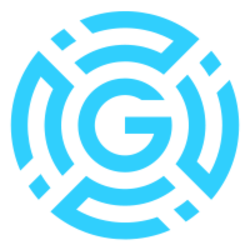As cryptocurrencies continue their march into the mainstream, regulators around the world are racing to put guardrails in place. With trillions of dollars flowing through digital assets, authorities want to curb illicit activities while allowing innovation to flourish. This means strict new Know Your Customer (KYC) rules are on the horizon for Europe that will require platforms to verify user identities.
TLDR
- IOTA Foundation and partners have developed a tokenized KYC system for user authentication in Web3 that respects privacy
- Solution enables remote identity verification by IDnow which is then tokenized by walt.id
- Resulting token stored in Bloom wallet to facilitate on-chain interactions with assurance of user authentication
- Collected identity information can be revealed to authorized parties if needed or token can be revoked
- System aims to meet upcoming EU regulations around anti-money laundering and countering terrorism financing for crypto
In response, the IOTA Foundation has teamed up with several partners to develop a novel approach to KYC that provides verification assurances without compromising privacy. The system relies on tokenization to validate identities on-chain while keeping personal information off-chain and under user control.
The first step utilizes IDnow, a leading identity verification platform, to confirm users’ identities through automated or human-assisted checks compliant with anti-money laundering standards. Walt.id then tokenizes this verification process without recording personal data on-chain. The resulting soulbound token gets stored in the user’s Bloom wallet, enabling authenticated interactions across Web3 apps.
If needed, the identity details can be revealed to authorized parties like law enforcement while retaining user autonomy. The token can also be revoked, adding flexibility. In addition, credentials can be shared in an interoperable format for offline use cases requiring verification. The system runs on a custom blockchain network from Spyce5 anchored to the IOTA-powered Shimmer network.
According to Dominik Schiener, Co-Founder of the IOTA Foundation, “This solution ensures that personal data stays off-chain while providing the compliance guarantees required by upcoming regulations around crypto-asset transfers. It’s a major step forward for privacy and autonomy as we move to mass adoption.”
Built for Web3 KYC at Scale
The rise of Web3 introduces new challenges and opportunities when devising digital identity frameworks. Traditional centralized and siloed models won’t suffice in an open ecosystem where users control their own wallets and data. At the same time, anonymity invites issues around fraud, money laundering, and other cyber threats.
IOTA’s system strikes a thoughtful balance using decentralization, governance, and consent. While regulations vary across jurisdictions, having an interoperable global standard eases cross-border compliance burdens for platforms and enhances portability for users. The modular nature of the stack also allows scaling as needed.
According to John Jordan, CEO of walt.id, “Our solution makes meeting regulatory requirements simple and frictionless for apps and gives users a portable digital identity anchored in the real world. As Web3 matures, robust identity verification will be a foundation.”
User Control Remains Paramount
Underpinning decentralized networks is the notion of self-sovereign identity – users own and manage their data rather than third parties. IOTA’s system upholds this principle through encrypting personal information and letting individuals decide what to share and with whom via fine-grained permissions.
The aim is to facilitate compliance while minimizing data collection through tokens that convey legitimacy without exposure. Checks occur as needed rather than preemptively storing private details. Users also retain the capacity to revoke access down the line. By mapping decentralized identifiers to verified credentials, freedom and accountability can symbiotically co-exist.
“Combining identity, reputation, attestations, and compliance into a unified system controlled by individuals rather than institutions opens up amazing possibilities,” says Tyler Wellener, CEO Bloom. “The coming age of multi-chain interoperability takes this even further.”
Plan for Regulatory Evolution
As global regulators eye DeFi and NFT platforms, expectations around KYC are set to tighten substantially from current standards. Having an adaptive solution in place lets operators get ahead of pending requirements so they can focus on building rather than playing catch up. Changes can be seamlessly plugged into the modular stacks as laws progress regionally.
In its role overseeing Shimmer and laying core infrastructure for an open metaverse, the IOTA Foundation has a vested interest in navigating this shifting landscape. The decentralized distributed ledger technology was designed from the ground up to enable trusted machine-to-machine transactions through innovations like zero-fee micropayments, smart contracts, and verifiable credentials.
On the identity front, the Foundation also manages the coordinate-based IOTA Identity framework that verifies and connects together the different facets of digital selves while retaining user control. Integrating support for portable KYC checks and credentials powered by IOTA and industry leaders paves the way for next generation apps across domains.















